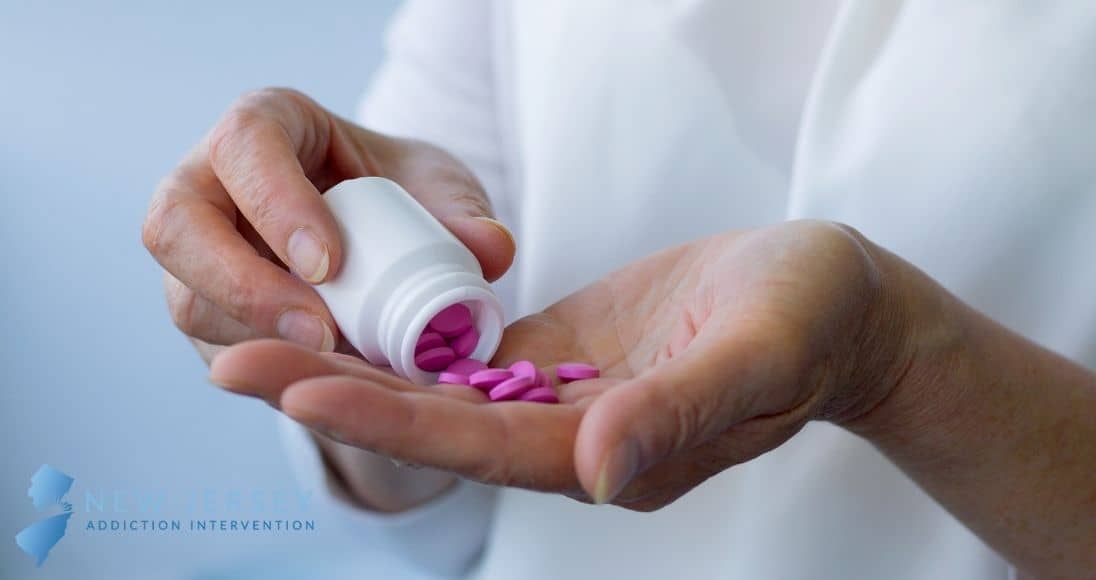Allergy season is getting longer and more intense, so you may find yourself reaching for your medicine cabinet’s supply of Benadryl from time to time. When used as directed, Benadryl can be safe and effective, so many people don’t think twice about the other substances they are putting in their bodies while taking the medication. One substance that is frequently used alongside this popular allergy medication is alcohol.
Mixing Benadryl and alcohol is extremely dangerous because both substances can make you drowsy. At the same time, both substances enhance the effects of the other, increasing the risk for adverse side effects and alcohol-related overdose.
What is Benadryl (Diphenhydramine)?
Benadryl is the brand name for diphenhydramine, an antihistamine medication that is used to treat allergy symptoms such as itchy eyes, throat, and nose as well as rashes and coughs.[1] It is an over-the-counter medication meaning it can be purchased at pharmacies, grocery stores, and many gas stations without the need for a prescription.
As an antihistamine, Benadryl works by decreasing histamine in your body. Histamine is produced as a result of your immune system’s response to allergens. High levels of histamine can cause a stuffy nose, itchy skin, and other allergy symptoms.
Unlike alcohol, Benadryl has little to no impact on the liver, but it is a central nervous system (CNS) depressant. When combined with alcohol, another CNS depressant, side effects of both substances become more pronounced and can result in dangerous complications.
Side Effects of Benadryl
All medications have side effects, even when they are taken as directed. However, the risk for side effects increases when drugs like Benadryl are abused.
Common side effects of diphenhydramine include:[2]
- Drowsiness
- Dry mouth
- Headache
- Urination problems
- Dizziness
- Blurred vision
- Lack of coordination
Some of these side effects, such as drowsiness, lack of coordination, dizziness, and blurred vision are also common side effects of alcohol. Mixing alcohol and Benadryl can make these side effects severe, making it seem as though a person has drunk more alcohol than they actually have.
Benadryl Misuse and Driving Warning
Benadryl is only approved to treat allergy symptoms–not for any other person. However, because it makes people so drowsy, many people use it as an over-the-counter sleep aid. While generic diphenhydramine is approved as a sleep aid, it should only be used as so when directed by a physician.[3]
Because of the drowsiness it causes, Benadryl has a driving warning on the box warning people from driving or using heavy machinery while taking the medication. You can easily fall asleep behind the wheel or have slowed reflexes that don’t allow you to be a safe driver. Driving on Benadryl is just as dangerous as driving while drunk.
5 Dangers of Mixing Benadryl and Alcohol
Drowsiness and increased risk of side effects aren’t the only reasons why you should avoid drinking alcohol while taking Benadryl. Other risks include:
- Overdose risk – Since both substances are CNS depressants, mixing them can slow down breathing and respiration to life-threatening levels, increasing your risk of an alcohol-related overdose.
- Dehydration – Benadryl dehydrates you which is why it causes dry mouth and urination problems. However, alcohol dehydrates you, too. Mixing the two substances can increase your risk for dehydration. If you become too dehydrated, you could end up in the emergency room.[4]
- Impaired memory – In the brain, Benadryl and alcohol both block acetylcholine, a neurotransmitter that is important for memory and learning. Using both substances together can cause you to experience memory loss or regular lapses in memory.
- Dementia risk – Using either alcohol with Benadryl long-term can permanently damage your brain’s capacity for memory and learning, thereby increasing your risk for dementia. Combining Benadryl and alcohol can increase this risk further.
- Risk for injury or accidents – Alcohol and Benadryl is a powerful combination that can affect your decision-making and coordination. As a result, you are at an increased risk for accidents or injury while intoxicated.
Symptoms of an Alcohol-Related Benadryl Overdose
Benadryl can stay in your system for a long time, and the more you drink, the more likely you are to experience drowsiness, respiratory depression, and other signs of overdose. Symptoms of a Benadryl and alcohol overdose include:
- Blurry vision
- Nausea or vomiting
- Loss of balance
- Inability to walk
- Rapid heart rate
- Extreme drowsiness
- Weakness
- Dry, red skin
- Low blood pressure
- Ringing in the ears
You can prevent the risk of overdose by not mixing these two medications and waiting at least 48 hours after taking Benadryl to drink alcohol.
Find Help for Yourself or an Addicted Loved One
Drinking alcohol more than you should or using drugs in a manner that is not recommended is never a good idea and may indicate a substance use disorder. If you or a loved one are struggling to get your substance abuse under control, know that you are not alone and that help is available.
At New Jersey Addiction Intervention, we connect you with quality care that can address the drug and alcohol-related issues that you are facing. Our New Jersey addiction treatment centers are nationally recognized and able to meet your changing needs. Don’t wait any longer for the life-changing treatment you deserve. Call now to speak with an experienced admissions coordinator.
References:
- https://www.fda.gov/safety/medical-product-safety-information/benadryl-diphenhydramine-drug-safety-communication-serious-problems-high-doses-allergy-medicine
- https://www.ncbi.nlm.nih.gov/books/NBK526010/
- https://www.nhs.uk/medicines/diphenhydramine/
- https://www.ncbi.nlm.nih.gov/pmc/articles/PMC5183790/
Medically Reviewed: May 11, 2022

All of the information on this page has been reviewed and verified by a certified addiction professional.

